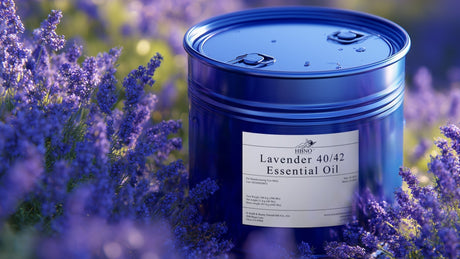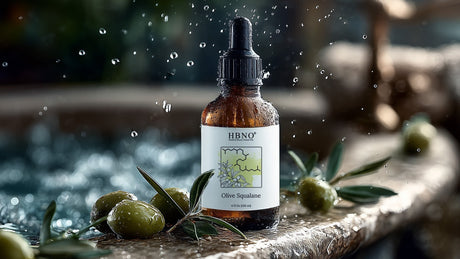Coconut oil has long been celebrated for its versatility, offering numerous health benefits that extend far beyond its common use in the kitchen. With its antibacterial, antifungal, and moisturizing properties, coconut oil is a valuable tool for various health and beauty purposes. In this guide, we will explore how coconut oil can be beneficial in treating spider bites, acting as a spider deterrent, and improving the appearance of facial veins, including how Coconut Oil Fractionated and Coconut Oil Fractionated MCT can enhance these effects.
Understanding Coconut Oil and Its Fractionated Form
Coconut oil is extracted from the meat of mature coconuts. It is known for its high content of medium-chain triglycerides (MCTs), which are fatty acids that have numerous health benefits. The most well-known MCTs found in coconut oil are lauric acid, capric acid, and caprylic acid. These fats are easily absorbed by the body and are known for their antibacterial, anti-inflammatory, and moisturizing properties.
However, while coconut oil is solid at room temperature due to the presence of long-chain fatty acids, there is another form called Coconut Oil Fractionated MCT. This is a more liquid version of coconut oil, made by removing the long-chain fatty acids. Fractionated coconut oil remains liquid at room temperature, which makes it ideal for topical applications such as massage, skin care, and aromatherapy. Its liquid consistency ensures that it absorbs quickly into the skin, making it an excellent carrier oil for essential oils and allowing it to penetrate deep into the dermal layers.
Whether you're using regular coconut oil or Coconut Oil Fractionated MCT, both forms have distinct advantages. The latter is especially useful for targeted skin care treatments, like the ones we will explore in this blog, due to its quick absorption and lightweight texture.
Coconut Oil as a Spider Deterrent
Spiders are often unwelcome guests in our homes. While most spiders are harmless and even beneficial for controlling pests, many people are simply not comfortable having them around. Fortunately, coconut oil can help deter spiders without the use of harsh chemicals or pesticides.
Coconut oil itself is not a spider repellent, but it can be combined with other natural ingredients to create an effective spider deterrent. One common approach is to mix coconut oil with essential oils like peppermint, citrus, or lavender, which are known to be unpleasant for spiders. The strong scent of these oils can keep spiders at bay. For example, a mixture of white vinegar, coconut oil, and essential oils can be used as a spray for areas where spiders are common.
To make your own spider-repellent spray using coconut oil, you can follow these simple steps:
1. Spider Deterrent Spray:
- Combine one cup of white vinegar with one teaspoon of coconut oil.
- Add a few drops of essential oils, such as peppermint or citrus oils, known for their spider-repelling properties.
- Pour the mixture into a spray bottle and shake well.
- Spray the solution in areas where spiders are commonly found, such as corners, window sills, or closets.
This solution can help keep spiders at bay in a natural, non-toxic way. The combination of vinegar, coconut oil, and essential oils creates a scent that spiders find unappealing, encouraging them to seek shelter elsewhere.
Additionally, coconut oil's ability to coat surfaces can create a slick barrier on spider webs, making it more difficult for spiders to navigate. While coconut oil itself isn't a miracle solution for completely eliminating spiders, it can certainly help reduce their presence in your home.
Coconut Oil for Spider Bites
If you've ever been bitten by a spider, you know how uncomfortable it can be. While most spider bites are harmless, they can cause irritation, swelling, and itching. Coconut oil offers a natural remedy for soothing these symptoms, thanks to its powerful anti-inflammatory, antibacterial, and moisturizing properties.
When applied to a spider bite, coconut oil can help reduce swelling and redness, while also moisturizing the skin to prevent further irritation. Additionally, coconut oil contains lauric acid, which has natural antimicrobial properties that can help prevent infection in the event of a scratch or an open wound.
To treat a spider bite with coconut oil, follow these steps:
1. Spider Bite Relief:
- Clean the bite area gently with soap and water.
- Apply a small amount of coconut oil directly to the bite, covering it completely.
- For enhanced healing, add a few drops of tea tree oil or lavender essential oil to the coconut oil, which will help calm the skin and reduce inflammation.
- Repeat this application two to three times a day for relief from itching, swelling, and discomfort.
The moisturizing effect of coconut oil can also help prevent the skin from drying out, which may occur after scratching the bite area. This helps reduce the risk of further irritation or infection. The antibacterial properties of coconut oil, combined with the calming effects of essential oils, make it an excellent natural remedy for spider bites.
While most spider bites are minor and can be treated with simple home remedies, if you experience more serious symptoms, such as a severe reaction or signs of infection, it is important to seek medical attention.

Coconut Oil for Facial Veins (Spider Veins)
Facial veins, commonly referred to as spider veins, are small, dilated blood vessels that appear near the surface of the skin. They are often seen on the cheeks, nose, and chin, and can be red, blue, or purple in color. While spider veins are typically harmless, many individuals seek ways to reduce their appearance for cosmetic reasons.
Coconut oil, especially when combined with essential oils, can be helpful in improving skin health, boosting circulation, and reducing the visibility of spider veins. While coconut oil itself cannot completely eliminate spider veins, its moisturizing and anti-inflammatory properties can help improve the overall appearance of the skin, making these veins less noticeable over time.
Massaging coconut oil into the affected areas can stimulate blood circulation, which may help reduce the appearance of spider veins by improving blood flow. When combined with essential oils like lavender, chamomile, or helichrysum, which have skin-soothing and circulation-boosting properties, coconut oil can provide a more holistic approach to managing facial veins.
Here's how to use coconut oil to improve the appearance of facial veins:
1. Facial Vein Massage:
- Warm a small amount of coconut oil between your palms and gently apply it to the affected areas of the face where the spider veins are visible.
- Use your fingertips to massage the oil in circular motions for a few minutes, which will help improve circulation and promote skin elasticity.
- For added benefits, mix a few drops of lavender, chamomile, or helichrysum essential oil into the coconut oil before massaging it into the skin.
The gentle massage of coconut oil combined with essential oils helps to improve circulation in the skin, reducing the visible appearance of spider veins and promoting healthier, more elastic skin.
The Benefits of Coconut Oil Fractionated MCT for Skin Care
Coconut Oil Fractionated MCT is an excellent choice for skin care due to its lightweight, non-greasy texture and rapid absorption. This makes it ideal for individuals with sensitive or oily skin, as it won't clog pores or leave behind a heavy residue. Fractionated coconut oil is a perfect carrier oil for essential oils, allowing them to penetrate deeper into the skin.
When used in conjunction with other essential oils, Coconut Oil Fractionated MCT can provide more effective relief for spider bites, act as a more efficient spider repellent, and help with the appearance of facial veins. Since Fractionated MCT absorbs quickly, it's often used in aromatherapy and as a base for massage oils.
If you're looking for a non-greasy oil that provides fast results without leaving a heavy residue, Coconut Oil Fractionated MCT is the perfect option. It allows you to experience the full benefits of coconut oil while enjoying the added advantage of its quick absorption and smooth texture.

How to Use Coconut Oil Fractionated MCT for These Purposes
1. Spider Deterrent Spray:
- Mix one cup of white vinegar with one teaspoon of Coconut Oil Fractionated MCT.
- Add several drops of peppermint, lavender, or citrus essential oils to enhance the repellent properties.
- Pour the mixture into a spray bottle and shake well.
- Apply the spray in corners, windowsills, and other areas where spiders are common.
2. Spider Bite Relief:
- Apply a small amount of Coconut Oil Fractionated MCT to the affected area of the spider bite.
- For enhanced effect, mix it with lavender or tea tree essential oil to reduce inflammation and prevent infection.
- Repeat the application a few times a day until the bite heals.
3. Facial Vein Massage:
- Warm a small amount of Coconut Oil Fractionated MCT and gently apply it to the areas with visible facial veins.
- Massage in circular motions to promote circulation and improve skin elasticity.
- Add a few drops of lavender or chamomile essential oil to enhance the therapeutic effects.
Conclusion
Coconut Oil, in both its standard and fractionated forms, offers a wealth of benefits for natural health and beauty remedies. Whether you're using it to deter spiders, treat spider bites, or reduce the appearance of facial veins, coconut oil's anti-inflammatory, antimicrobial, and moisturizing properties make it an excellent choice for skin care. By incorporating coconut oil and Fractionated Coconut (MCT) Carrier Oil into your routine, you can enjoy healthier skin and a more comfortable environment, all while benefiting from the natural properties of this amazing oil.
Choose a Custom Private Label Service designed to meet unique branding and product needs.



